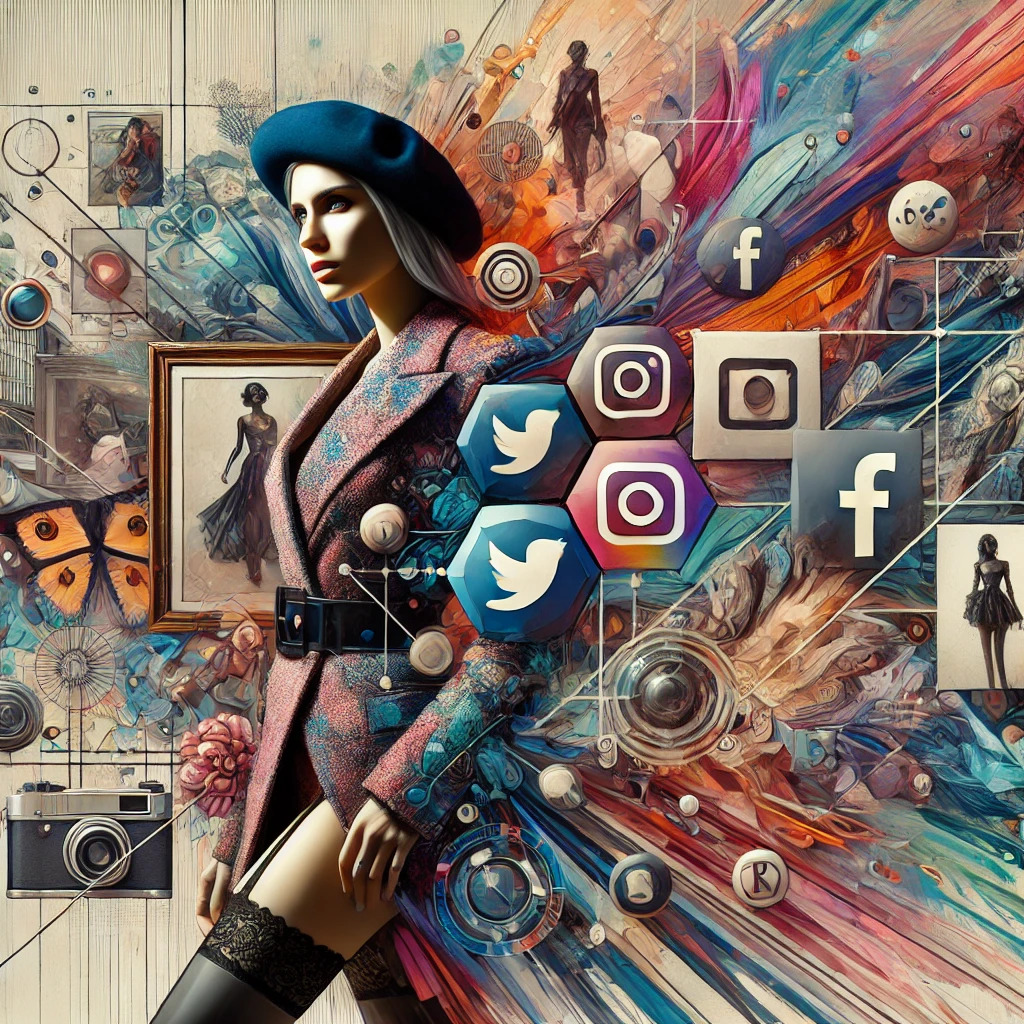The relationship between art and fashion is a compelling and dynamic interplay that has evolved significantly over the decades. This interaction goes beyond mere visual aesthetics, intertwining intellectual legitimacy, commercial interests, and cultural relevance. Fashion provides art with financial support and widespread audience engagement, while art offers fashion a touch of intellectual gravitas and creative validation. This article delves into the intricate dynamics of this relationship, exploring how each domain benefits from the other and the resulting impact on contemporary culture.
The Visual Allure of Fashion Photography
Fashion photography has long served as a bridge between the commercial and artistic realms. Iconic images such as those of snakes enveloping a model in Alexander McQueen’s designs or Victoria Beckham emerging from a Marc Jacobs shopping bag exemplify the powerful narratives that fashion photography can convey. These images not only capture attention but also tell stories that transcend their commercial origins, thereby solidifying their place in the artistic canon.
Exhibition Spotlight: Beyond Fashion at Saatchi Gallery
The “Beyond Fashion” exhibition at London’s Saatchi Gallery showcases the transformative journey of fashion photography from mere commercial shots to recognized art forms. Curated by Nathalie Herschdorfer, this exhibition features over a hundred images spanning several decades, highlighting the genre’s evolution and its increasing acceptance in the art world. The exhibition categorizes these works under themes such as ‘fantasy,’ ‘surrealism,’ and ‘allure,’ reflecting the diverse approaches within fashion photography.
Historical Context: Fashion Photography as Art
Historically, fashion photography has always been a fertile ground for artistic experimentation. Early pioneers like Man Ray and Erwin Blumenfeld integrated surrealist elements and visual trickery into their fashion shoots, challenging the boundaries between art and commerce. These early efforts paved the way for contemporary photographers to explore and innovate within the genre, contributing to its recognition as a legitimate art form.
The Evolution of Fashion Photography
Fashion photography has evolved significantly, influenced by cultural movements and technological advancements. From the macabre scenes of Guy Bourdin to the haunted tableaus of Deborah Turbeville, the genre has continuously reinvented itself, borrowing elements from various art forms to create compelling visual narratives. This ongoing evolution underscores the genre’s capacity to mirror and distort modern culture, offering a unique perspective on societal trends and values.
The Role of Social Media in Fashion Photography
The rise of social media platforms like Instagram and Twitter has revolutionized the dissemination of fashion imagery. These platforms have expanded the reach of fashion photographers, allowing their work to be seen by global audiences. However, this increased visibility comes with a demand for constant content creation, often diluting the impact of individual images due to the sheer volume of content consumed daily.
The Commercialization of Fashion Imagery
As fashion photography gains recognition in the art world, it also attracts significant commercial interest. High-profile collectors now invest in fashion photographs, elevating their market value and further blurring the lines between art and commerce. This shift highlights the dual role of fashion photography as both an artistic endeavor and a commercial enterprise.
The Intersection of Art and Fashion
The mutual admiration between art and fashion is evident in various collaborative efforts. Fashion brands often sponsor art exhibitions and collaborate with artists to create unique collections, while artists draw inspiration from fashion to produce thought-provoking works. This symbiotic relationship benefits both fields, enhancing their cultural relevance and broadening their audience reach.
Notable Collaborations: Art Meets Fashion
Designers like Alexander McQueen, Elsa Schiaparelli, and Rei Kawakubo have successfully navigated the intersection of art and fashion, producing works that are celebrated for their conceptual depth and artistic integrity. Contemporary designers like Grace Wales Bonner and Jonathan Anderson continue this tradition, integrating artistic influences into their fashion lines and challenging conventional notions of beauty and design.
The Economic and Cultural Impacts
The convergence of art and fashion has significant economic and cultural implications. Fashion brands gain cultural legitimacy and artistic credibility, while art institutions benefit from the financial support and broader audience engagement that fashion collaborations bring. This interplay creates a dynamic cultural landscape where creativity and commerce coexist, driving innovation and cultural discourse.
The Future of Art and Fashion
As both industries continue to evolve, the relationship between art and fashion is likely to become even more intertwined. Emerging technologies, changing consumer preferences, and evolving cultural narratives will shape the future of this relationship, offering new opportunities for collaboration and innovation.
Strike The Pose
The relationship between art and fashion is a testament to the power of creative collaboration and cultural exchange. By leveraging their unique strengths, both fields enrich each other, creating a vibrant cultural tapestry that resonates with audiences worldwide. As this relationship continues to evolve, it will undoubtedly inspire new forms of artistic expression and cultural engagement, reinforcing the timeless appeal of both art and fashion.



Leave a Reply
You must be logged in to post a comment.